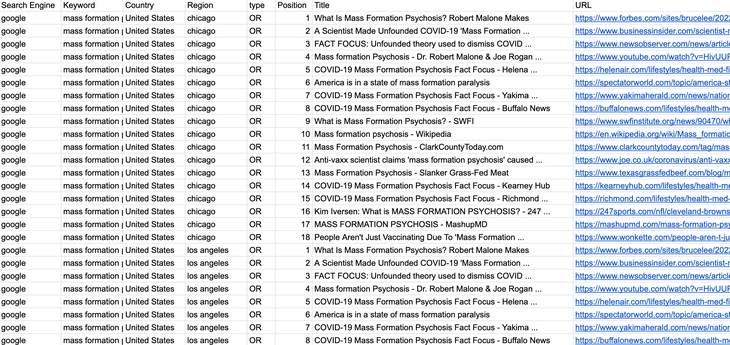The concept of mass formation psychosis as an explanation for our lingering nonsensical covid hysteria was brought to the masses by Dr. Robert Malone on Joe Rogan’s podcast in late December. Malone contextualizes work done by psychologist and statistician Dr. Mattias Desmet on the conditions necessary for mass formation to set in, and explains why many of those conditions are being met right now.
Per Google Trends, Immediately after the podcast, interest in and searches for the term skyrocketed. And it just so happens that Malone himself had previously published an article on his Substack, expanding on the very subject he just became responsible for driving so much interest in.
And separately, as we know, the purpose of a search engine is to satisfy a person’s search by matching him with the most relevant information possible. So if someone were searching for “mass formation psychosis,” certainly Malone’s article would appear at the top, right? He is basically synonymous with the term right now.
Related: Crib Notes for the OTHER Joe Rogan Podcast Everyone Is Talking About, With Dr. Malone
It appears Bing and Yahoo may think so. But Google, perhaps not so much.
At least that is what data collected by the SEO data tool GeoRanker would indicate, showing that a search for “mass formation psychosis” on both Yahoo and Bing returns Malone’s article as the #1 organic result, but for Google, the article is not listed as one of at least the first twenty organic results.

Organic results are the regular old links that show up beneath news and top stories results. Relative to news and top stories, organic results are known to be comparatively more static and thus more trackable.








Join the conversation as a VIP Member